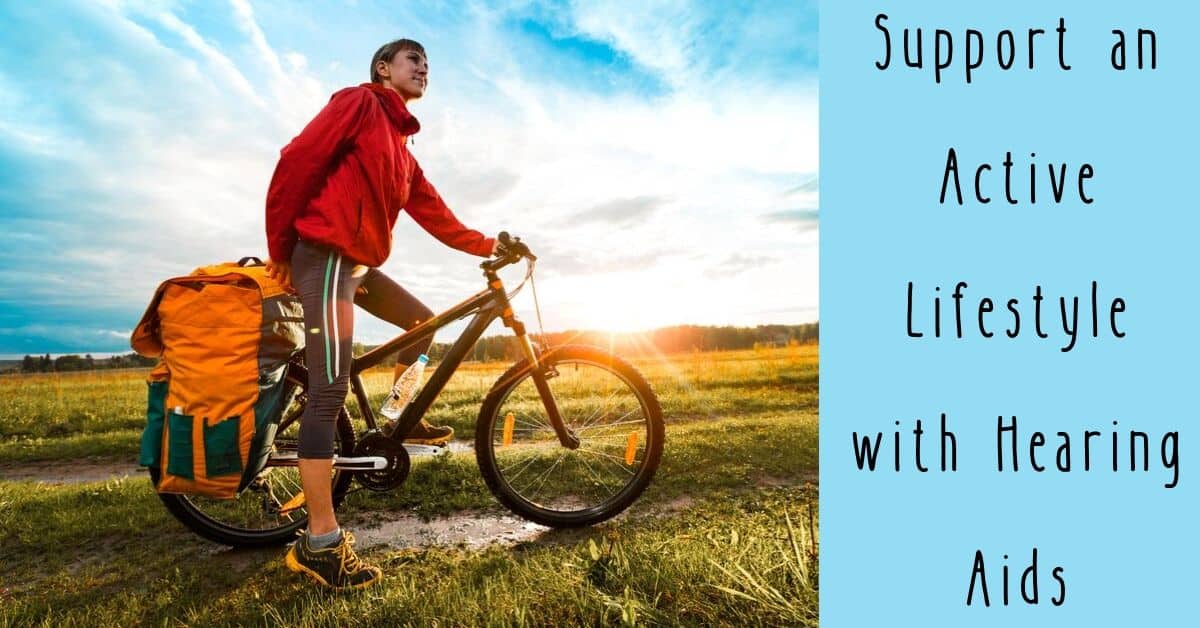
If you have been diagnosed with hearing loss but are afraid of what that may mean for your active lifestyle, there are new advances in hearing aid technology that could be right for you. Along with Bluetooth wireless technology, some hearing aids are manufactured more durably and some are even water resistant.
Hearing loss may be a normal part of aging, but it does not mean you should stop being social. It is important to maintain your quality of life while becoming familiar with your new hearing aids. Hearing aid users also report that their quality of life has improved and that hearing aids, or other hearing solutions like cochlear implants, have had a positive effect on their overall health. They report experiencing less physical and mental exhaustion, better sleep, better memory, and less depression than non-users. There are many benefits of wearing hearing aids—and maintaining an active physical and social life is a big one!
Sports and Recreation
As you adjust to wearing your new hearing aids, it is actually to your benefit to continue being social and testing out the devices in different environments. As a part of your hearing aid fitting, you will be in regular contact with your hearing doctor or hearing aid specialist. It is up to you to not only ensure that the physical fit is good, but also that it meets your technical needs and is durable enough while you are active.
One feature on some hearing aids that could be helpful is water resistance, some are even waterproof. Whether your physical activity is sailing, kayaking, running, or yoga, the level of sweat and moisture your body produces could be harmful to a regular hearing aid. The two-digit IP (Ingress Protection) is a rating from the International Electrotechnical Commission (IEC) that measures the device’s protection against dust and debris and its resistance to moisture—on a scale from 1-7 and on a scale from 1-9, respectively. Many waterproof/water resistant hearing aids are rated IP68, for example. Be sure to inquire about the device’s IP rating and, based on your physical activity, make an informed decision.
A Life Outdoors
Trail hiking, rock climbing, backpacking, and more, are great ways to enjoy the great outdoors. Take these activities into consideration when choosing your hearing aid, too, because dust, sand, and dirt can be just as harmful as water to your device. The manufacturer’s IP rating gives you an idea of how well the seal keeps debris out of the electrical enclosure.
Wind and rain are elements you should keep in mind, too. At the trailhead or on the construction site. Wind can be a nuisance because it blows across microphones and can produce a loud sound directly in the ear. There have been advances in noise reduction technology, but currently they are only available in top-tier hearing aids, making them very expensive.
Wireless Hearing Aids
Going wireless is becoming more common in the advancement of tech and manufacturing of modern hearing aids. There are hearing aids that are specifically made to pair with your phone, Made For iPhone, for example, and others with sophisticated Bluetooth integration. These wireless technologies allow wearers to control volume and other setting from a smartphone, stream calls directly to their hearing aids and more. Additionally, they can stream music or other media while you enjoy your run, workout at the gym, or afternoon stroll.
Untreated Hearing Loss
There are a variety of negative physical, mental, and social implications that can accompany untreated hearing loss. It can lead to social isolation and loneliness, which can in turn lead to depression. It can also have various effects on family and personal relationships: strained conversations, impatience and frustration with repetition, eventual withdrawal. Untreated hearing loss can also influence your physical health and well-being and reduce physical activity. These indicators all suggest that people with untreated hearing loss are more likely to have other chronic medical conditions than people with normal hearing.
Pacific Northwest Audiology
Many options in today’s advanced hearing aids exist to keep you active. If you like to go rafting, day hiking, or camping, there is a hearing aid that can support you in enjoying the outdoors. If jogging or biking are more in line with your active lifestyle, there are aids that can be fitted for those activities, too. Talk to us at Pacific Northwest Audiology about options that can keep you active—do not let hearing loss slow you down!
